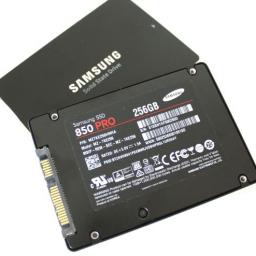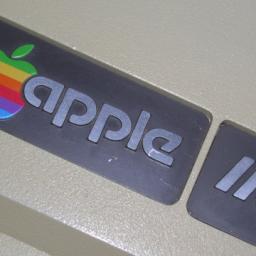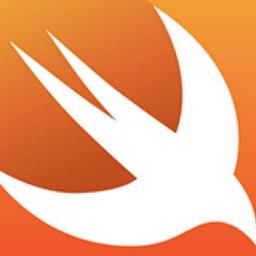
Like it or hate it,
Google's Streetview map interface exists and is used every day by all sorts of people. Getting to the point of a usable map interface wasn't easy.
Here are some war stories from the trenches by Iain McClatchie, who participated in the effort.
We didn't know it at the time, but the problems we were having were essentially due to the high resolution we were trying to shoot. High resolution from a moving platform leads to short exposure times. Short exposure times require large relative apertures to get enough sensitivity. Compared to small format cameras, our focal lengths were fairly long (28 mm, IIRC), so that meant much larger apertures, much larger photocurrents, and thus the problems we were fighting. In hindsight, the two real solutions were lower resolution or CMOS sensors. Rather than try those, I tried to make the high resolution CCD work with shutters (the R3 camera) and choppers (R4).
It's a pretty amazing project and must have been an awesome time to be in on the fun.

Anandtech
reviewed the Samsung 850 Pro SSD that features a new 3D storage structure.
For years it has been known that the scalability of traditional NAND is coming to an end. Every die shrink has been more difficult than the previous as the endurance and performance have decreased with every node, making it less and less efficient to scale the size down.
By stacking transistors (i.e. cells when speaking about NAND) vertically, Samsung is able to relax the process node back to a much more convenient 40nm. When there are 32 cells on top of each other, it is obvious that there is no need for a 10nm-class node because the stacking increases the density, allowing production costs to scale lower. As we have seen with the history of NAND die shrinks, a higher process node provides more endurance and higher performance, which is what the 850 Pro and V-NAND is all about.
Although launching with a slight cost premium over traditional NAND, the benchmarks show that this drive is "without a doubt the best drive in the market" and the future of solid state drives.

American like to talk about progress and technological innovation, but they (we) get pretty quiet when it comes to our cars. Most American cities are increasingly nightmarish urban centers, choked with car traffic and foul with all the worst impacts of a society that has chosen the freedom of individual, automotive transportation and eschewed public transport in most of its forms. Everybody wants "reform" but few are actually doing it with much success.
Enter Denver, Colorado. From CityLab:But in a state that recently voted to legalize the retail sale of marijuana, change is clearly in the wind. Ten years ago, Denver's new mayor (and current Colorado governor) John Hickenlooper began to ramp up a campaign to convince voters to approve an ambitious expansion of the region's embryonic light rail network. A similar plan - fuzzy on such key details as routes and cost - had been defeated in a 1997 referendum. In 2004, the region's voters approved $4.7 billion of new debt for the FasTracks program. The plan, to add 121 miles of new commuter and light-rail tracks to the region, 18 miles of bus rapid transit lanes, 57 new rapid transit stations, and 21,000 park-and-ride spots, was approved 58-to-42, precisely reversing the results of the '97 referendum. (The pricetag has since risen to $7.8 billion.)
By building a multi-poled system, RTD is tailoring transit to the contemporary metropolis. Crucially, by building it in conjunction with high-density transit-oriented development, the agency is also scheming to change the very nature of the American metropolis. That's why, when it comes to the future of transportation on this continent, Denver may be the city to watch.

Congrats to the Raspberry Pi, the little device that just keeps going and going.
They've sold 3 million units so far and the demand shows no sign of slowing. And the creative new uses for it keep on coming:
Have a look at Her Majesty the Queen of England in that first link: she's gazing thoughtfully at a couple of Raspbis and some assorted hardware. What gadget do you think she'd build?
[Ed note: The steady stream of cool projects being built around Raspberry Pis is fascinating and captivating. Wish this damned day job didn't keep getting in my way of having all this fun.]
Alas, fair Orkut, we barely knew ye. Or barely used ye, something like that. Either way,
Google has decided to retire Orkut, it's first foray into social networking, after ten years. Ten years is an eternity on the Internet, but Orkut has clearly been superceded by
Google Plus, into which Google is investing increasingly important amounts of time, energy, and code.
From the announcement:
Ten years ago, Orkut was Google's first foray into social networking. Built as a "20 percent" project, Orkut communities started conversations, and forged connections, that had never existed before. Orkut helped shape life online before people really knew what "social networking" was. ...
Orkut, the service, may be going away, but all of those incredible communities Orkut users have created will live on. We are preserving an archive of all public communities, which will be available online starting September 30, 2014. If you don't want your posts or name to be included in the community archive, you can remove Orkut permanently from your Google account. Please visit our Help Center for further details.
Ed note: Anyone still using Orkut is requested to close their account and open up something at AOL, Geocities, or Myspace as soon as possible.

There's been tremendous evolution in the programming language space, as new coding philosophies and paradigms change over time to address old problems or new visions. But how to decide where to invest your time and energy?
Apple's new Swift language is the newborn on the block, and iOS developers seem to be impressed. Infoworld recommends
nine languages that make writing Javascript a joy, if that's possible (coffeescript, gorillascript, typescript, and others). Venturebeat
recommends you start with Javascript before moving onto something like Python or Ruby. The Google engineer who invented Dart, Gilad Bracha,
deplores the dearth of viable programming languages that would allow the Web to compete with native code. CIO also recommends Javascript, but
also suggests budding web designers also look into Opa, Scala, and Erlang, among others.
Or should you just throw in the towel, and have a little fun with something totally useless like Brainfuck, or the
Arnold Schwartzenegger programming language?
Well,
World Backup Day came and went on March 31. If you hadn't already spent some time and energy in a solution for backing up and archiving your personal digital resources, you've hopefully been inspired by this now annual event and cobbled together a solution that fits your needs. So, what is it?
There are now many competing solutions for local backup, no matter which operating system is your preference. Throw in the periodic burning of optical media, a dedication to offsite media and it gets more complicated. Add a NAS or SAN to the system and it gets thornier, since your typical NAS can now help you amass far more digital "stuff" than you can possibly archive without a second NAS.
No matter what you design, dedication, organization, and anticipation remain an important part of the mix.
How do you do it?
Share your thoughts on our new, Monday poll.
This just in from the Reg, and it's not good:
a massive botnet of 320 Command & Control servers placed in 40 countries, and being sold to law enforcement agencies to infiltrate and root cell phone systems.
The Milan-based firm that developed RCS boasts on its website that its malware can crack any mobile operating system and remain undetected while doing so. Based on documents leaked to Citizen Lab, the firm may be correct in its claims. ... Once a target is identified by cops or g-men the malware is sent out and installed, either by tricking the user with a spearphishing attack or by exploiting vulnerabilities in the target's operating system. ... Once on a target's mobile, the RCS software can intercept and record all phone calls, SMS messages, chat conversations from apps such as Viber, WhatsApp and Skype, grab any files or pictures on the handset, spy on the calendar, look up the user's location, and take screenshots whenever the operator specifies, as well as harvesting data from third-party applications like Facebook.
Looks like Android is more at risk here, but iOS can also be hacked, especially if it's been jailbroken. 'Scuze me while I go reinstall a landline and move into the basement with a tinfoil hat and a weapons cache :(

Since retiring as CEO (in 2000), Chief Architect (2008), and Chairman of the Board (2013) of Microsoft, Bill Gates has devoted most of his professional life to the work of his philanthropic organization. The Bill and Melinda Gates Foundation provides grants to charities, scientists and others to fight disease and poverty, and to provide educational and technological assistance,
mostly in the developing world. But Gates remains interested in science and technology of all kinds, and climate change and 'clean energy' in particular.
He has just blogged about the
serious underfunding of clean energy research and development in the US - from both government and the private sector - and backed up his claim with four stunningly clear charts, based on publicly available data, showing the rapid rise of energy-related carbon emissions over the past 150 years; comparing US R&D expenditures on energy vs. other fields (e.g. defense, health care); and showing where the US stacks up against other countries (middle of the pack).
Gates advocates tripling US Government expenditures on long-term energy research, and increasing private sector research indirectly by expanding grants and streamlining regulations.
The U.S. Supreme Court
ruled unanimously today that law enforcement officers need to get a search warrant before they can search through the contents of someone's smartphone.
The term 'cell phone' is itself misleading shorthand; many of these devices are in fact minicomputers that also happen to have the capacity to be used as a telephone," Roberts wrote. "They could just as easily be called cameras, video players, rolodexes, calendars, tape recorders, libraries, diaries, albums, televisions, maps, or newspapers.
 Like it or hate it, Google's Streetview map interface exists and is used every day by all sorts of people. Getting to the point of a usable map interface wasn't easy. Here are some war stories from the trenches by Iain McClatchie, who participated in the effort.
Like it or hate it, Google's Streetview map interface exists and is used every day by all sorts of people. Getting to the point of a usable map interface wasn't easy. Here are some war stories from the trenches by Iain McClatchie, who participated in the effort.



